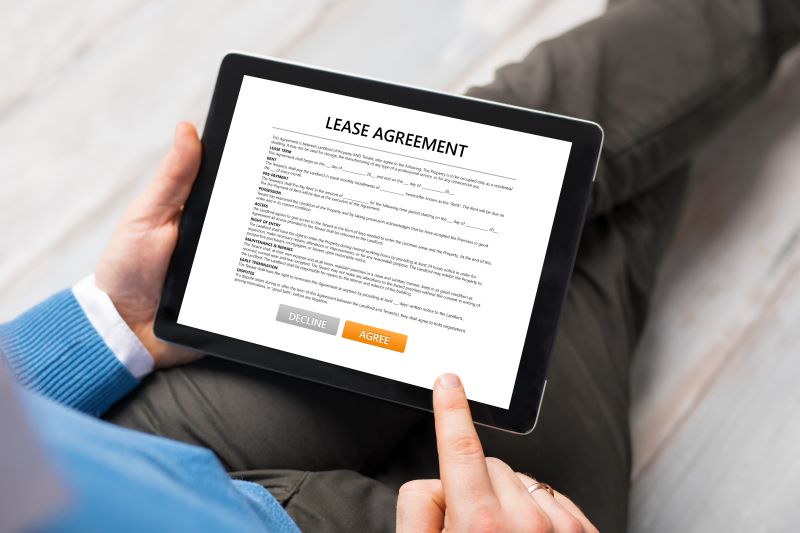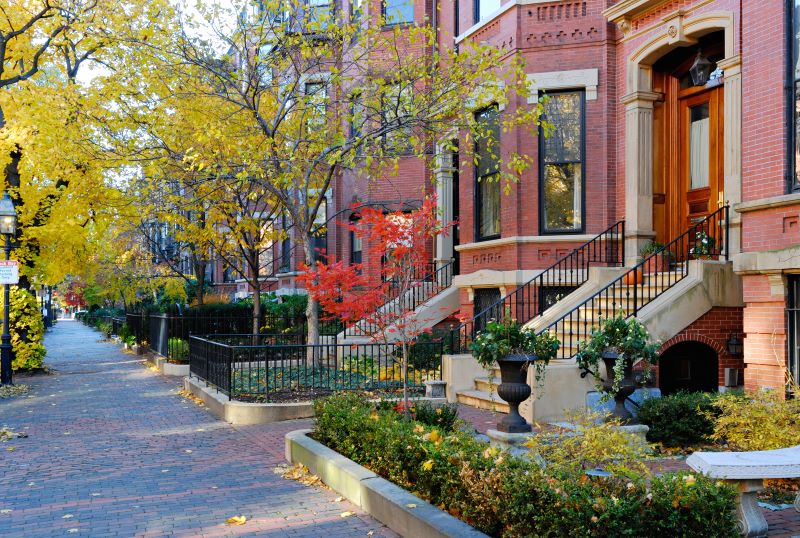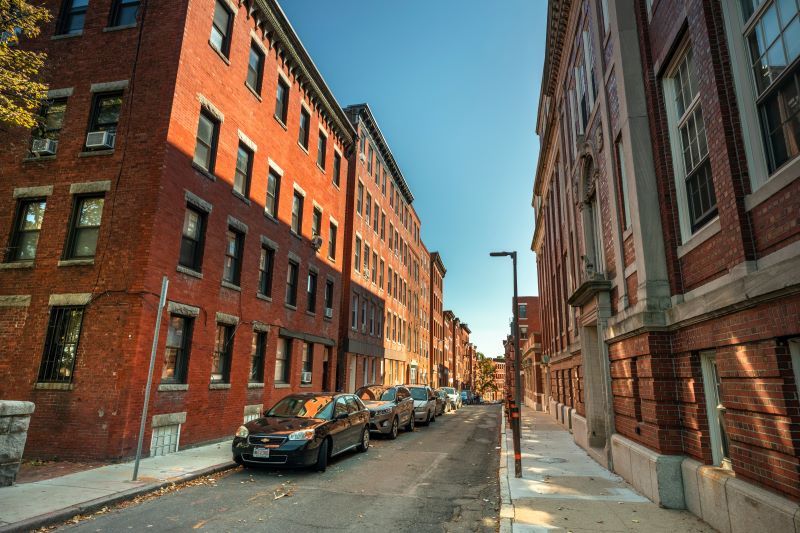
You’re concerned about high-interest rates, rapid inflation, and a poor national energy policy—I understand. Roger that. You’re looking to start grasping the different concepts of real estate in the Greater Boston Area. In your head, you’re constantly reminding yourself that you want to make the best real estate decision possible as you head into 2024. Perhaps you’re asking yourself, “Where do I begin to understand the fundamentals of real estate?”
What are the differences between an apartment, a condo, and a townhouse in Massachusetts?
If you’re just beginning to learn about real estate, you may be reflecting on the many different forms of housing as you search for your next place to live in Boston. They all seem similar in terms of physical structure, but it’s crucial to know their specific differences. The main feature that sets these properties apart is control and ownership.
Boston’s population grew by 12% between 2010 and 2023, driven by younger professionals, families, and international migrants attracted to the city’s job market, cultural offerings, and educational institutions. With a relatively young median age of 32, Boston’s demographic tends to favor renting over buying, fueling strong demand for apartments and condos. As the population is projected to increase by another 5% over the next decade, the competition for centrally located housing will likely remain intense, sustaining upward pressure on rents and property prices, notes the marketing director from 3 Men Movers.
For instance, you don’t own an apartment, but you do own a condo or a townhouse. According to a 2022 United States Federal Reserve study, 27% of Massachusetts residents rent, while nearly two-thirds own their homes. This indicates that many people approach owning and renting in Massachusetts with different mindsets. In the outline below, you will learn more about the similarities and differences between property terms and their definitions.
It’s important to arm yourself with sufficient real estate knowledge. Then, you can choose the best path for you, based on your lifestyle, budget, work responsibilities, and the conveniences available to you.
Apartments
An apartment is a rental property owned by a landlord and/or managed by a property management company. There are tens of thousands of apartments in the Boston area, but many people are unaware that a vast number of rentals are available even in small towns. Apartments in Boston are managed in various ways, leading to significant contrasts in management styles, competencies, and modern conveniences. Different property owners will have different rules and practices that can affect your renting experience. As a renter, you will not own the unit itself and will be bound by the covenants contained within your lease. Massachusetts has numerous consumer protection laws concerning renting, and it’s probably a good idea to be familiar with them, especially if you believe your apartment is not being managed well.
Apartments in Greater Boston are primarily found in small multifamily buildings, large residential complexes, or luxury complexes, though single-family rentals are available but much rarer. As you move away from the Greater Boston Area, single-family apartments become more common, although larger rental developments are becoming increasingly prevalent. Apartments offer leasing flexibility, making them an ideal solution if you don’t plan to stay in one area for long. They also allow you to explore an area to see if it suits your lifestyle, is convenient for your work, or has a particular appeal. Furthermore, apartments can save you time dealing with maintenance issues, which is beneficial if you’re a busy executive working 80 hours a week without the time or energy for repairs or upkeep.
Sometimes, rent may not be as high as the monthly mortgage payments required when owning a home.
However, in competitive housing markets like Boston, rent can often exceed the mortgages of comparable properties. With the current high interest rates, renting might seem like a more attractive option. You may want to look for websites that clearly show both renting and buying options, so you can determine which offers better value. The value proposition varies throughout economic cycles.
Generally, you’ll need a larger down payment to purchase a home than you would for a rental deposit, so it makes sense to thoroughly study both rental and sales markets. Not all real estate markets are created equal. In some areas of Greater Boston, it makes more sense to rent, while in others, buying is the better choice. A reliable mortgage calculator that compares mortgage costs to real-time prevailing rents can give you an advantage.
Repairs
Another significant reason why people rent is that if there’s deferred maintenance on a property or if something breaks, the landlord is responsible for the repairs. When you buy, fixtures and systems may be aged and can fail at any time. It’s unrealistic to assume you’ll always buy new construction or recently renovated properties, as much of the housing in Boston is decades old. Massachusetts has some of the oldest housing stock in the country, and you have to be realistic about maintenance issues. Therefore, beyond your down payment, it’s wise to have emergency funds for unforeseen repairs. If you’re financially stretched by the purchase, or if you’re not planning to stay in the area for long, leasing should be your primary consideration.
Renting an apartment means paying for the convenience of not having to spend time obtaining quotes and coordinating with vendors for maintenance. If your dishwasher breaks, for example, you simply submit a maintenance request, and the landlord or maintenance team will address the issue. The property owner or management company also takes care of miscellaneous upkeep such as landscaping, cleaning common areas, and pest control. Renting can offer significant time savings over a year, making it a favorable option for professionals with demanding work hours or students with heavy course loads.
Understand Your Lease
When you sign a lease, you commit to staying for the lease term, unless you arrange an alternative with your landlord. Some landlords are pragmatic and allow subletting or lease-breaking with financial compensation. Others may include clauses that penalize tenants for breaking the lease. It’s crucial to understand what you’re signing, study any addenda, and perform due diligence. Do not expect your landlord to find new tenants for you; you must take the initiative. Many Greater Boston landlords will work with you to find mutually beneficial outcomes, with the key being to provide as much notice as possible.
Once you sign a lease, the rent is usually fixed for a set period, typically twelve months. Upon renewal, landlords often adjust rent to keep pace with inflation or tax increases. With rising costs for insurance, utilities, and maintenance due to inflation, many landlords are raising rents. In most leases, you pay rent plus utilities, with some including heat and hot water, although this is increasingly rare in Greater Boston.
According to the November 2023 Real Time Rental Data Report by Boston Pads, the average rent in Boston is $3,148.00, ranking it among the most expensive housing markets in the nation. Rents across studios to five-bedroom apartments in Boston rose by 11.18%, marking it as one of the cities with the fastest-growing rents. The limited land availability and outdated zoning practices, combined with strong neighborhood resistance, make it challenging to increase the supply of apartments quickly enough to meet demand.
Condos
A condo may resemble an apartment in size and quality, both inside and out. However, owning a condominium in Boston is different from renting an apartment. When you purchase a condo, you gain ownership, which allows you to build long-term wealth through mortgage payments and potential property appreciation. The condo is usually managed jointly by the owner and a homeowners association (HOA). The condo owner maintains significant control over their unit, managing most interior decisions and maintenance. In contrast, the exterior and common areas are typically managed through an arrangement set by the HOA, funded by condo management fees. These fees can vary greatly, reflecting the amenities offered and other factors, with some fees in Boston exceeding $1,000 per month. Condo fees can also be subject to change through voting or special assessments, making it crucial to understand the fine print.
Condos can also be rented out. In this scenario, the condo owner acts as your landlord, handling everything from collecting rent to responding to maintenance requests. The condo owner will also pass on communications from the condo association regarding new rules or updates. As a tenant, maintaining timely and consistent communication with your landlord is beneficial, ensuring a positive relationship. Condos often feature more modern amenities and personal upgrades, as owners invest in renovations to enhance the property’s value. Generally, condos offer more amenities than apartments. The HOA board allows the owners to provide their input on how the condo should be operated and managed.
Townhouses
A townhouse looks similar to single-family homes except they are part of a multi-unit complex and they share walls. There are usually two floors occupying the townhome. The first floor accommodates living room, dining room, and kitchen. The second floor accommodates the bedrooms. Some townhomes have three floors or more. Townhomes also tend to have large full basements not shared with other tenants which is attractive for storage and other uses. Like condos, a resident can either rent or own the townhome. Owning a townhouse is different from a condo because you generally own the land on which it is situated and the property itself.
Townhouses can also have an HOA board. The HOA board also manages townhouses, but the fees tend to be less expensive than the ones for the condos because there is not as much common maintenance required. Whoever is responsible for the maintenance depends on whether the resident owns or rents. If they rent, the property management or landlord will resolve the issues. If they own the townhouse, they are responsible for the maintenance. Townhouses are generally slightly less overall maintenance than single family residences that are rented or owned. Townhouses are also generally larger than condominiums in Boston so you tend to have a larger bedroom count and often times it makes it more affordable if you are sharing it with roommates.
Conclusion
Now that you know the key differences between apartments, condos, and townhomes, you may have to figure out if which style of living is right for you. You may decide you want to rent a place, but the inconveniences and strict rules of apartment living does not sit well with you. This scenario can often be nerve-wracking to people that like to exercise a lot of control in their life. If you rent too long you will not be building any equity into a property. Perhaps purchasing a smaller condo or townhouse is the way to go for you and rent it out later if you move? It is vital that you get clarity of what is most important to you and what you can afford. It might be worth it for you to come up with a three year’s saving plan with a target to purchase a property in the future. You should also consider if you are buying at the top of a market or buying in an upcoming neighborhood. Details matter.
You must write down all your “must haves” and work them against your “wants”. Consider what the most effective overall strategy is for you. Rents and property prices will vary widely from location to location so it is imperative you scan for bargains. You should also calibrate your purchase against your time commute to key locations such as work, school or hobbies. Boston traffic can beyond brutal so make commuting a huge factor in your choice.
So it’s clear we have given you a lot to think about- but do not stress! Make the real estate process fun. It’s great to explore new neighborhoods and styles of properties and owning and leasing options. If your gut is pulling you in one direction; keep listening to that instinct — chances are it is going to be correct. At the end of the day real estate still comes down to a huge mixture of preferences and lifestyle choices coupled with your budget. Keep looking – you will be successful! In the end, it never hurts to seek out a real estate professional that has great data and years of experience so they can give you their insight. Some real estate agents will actually help you stay organized and ask you questions that you never even considered. A great real estate broker in Boston often knows about future supply that is coming in 6-12 months that may not be listed anywhere yet. We look forward to working with you.

Demetrios Salpoglou
Published November 6, 2023
Demetrios has pulled together the largest apartment leasing team in the Greater Boston Area and is responsible for procuring more apartment rentals than anyone in New England – with over 130k people finding their housing through his services. Demetrios is an avid real estate developer, peak performance trainer, educator, guest lecturer and motivational speaker.
















